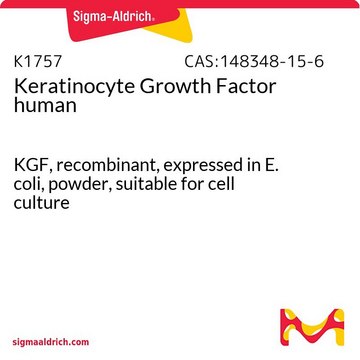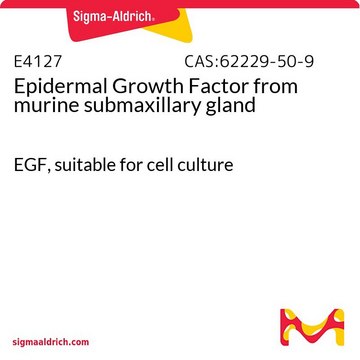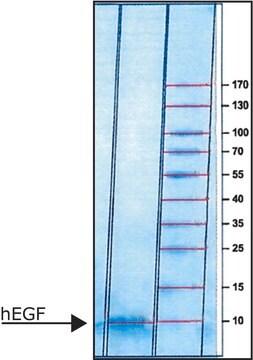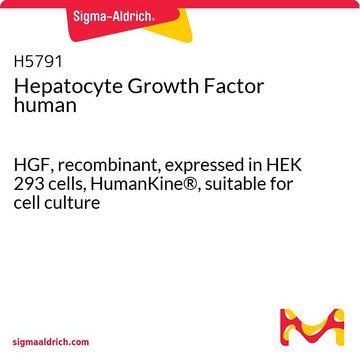H6666
Keratinocyte Growth Factor human
HumanKine®, >95% (SDS-PAGE), recombinant, expressed in HEK 293 cells, lyophilized powder, suitable for cell culture
Sinónimos:
FGF-7, KGF
About This Item
Productos recomendados
product name
Keratinocyte Growth Factor human, KGF, recombinant, expressed in HEK 293 cells, HumanKine®, suitable for cell culture
biological source
human
Quality Level
recombinant
expressed in HEK 293 cells
assay
>95% (SDS-PAGE)
form
lyophilized powder
potency
4-20 ng/mL EC50
quality
endotoxin tested
mol wt
dimer 17-30 kDa (glycosylated)
packaging
pkg of 10 μg
technique(s)
cell culture | mammalian: suitable
impurities
<1 EU/μg
UniProt accession no.
storage temp.
−20°C
Gene Information
human ... FGF7(2252)
¿Está buscando productos similares? Visita Guía de comparación de productos
General description
Application
Biochem/physiol Actions
Physical form
Preparation Note
Analysis Note
Legal Information
Comparable product
Storage Class
11 - Combustible Solids
wgk_germany
WGK 3
flash_point_f
Not applicable
flash_point_c
Not applicable
Certificados de análisis (COA)
Busque Certificados de análisis (COA) introduciendo el número de lote del producto. Los números de lote se encuentran en la etiqueta del producto después de las palabras «Lot» o «Batch»
¿Ya tiene este producto?
Encuentre la documentación para los productos que ha comprado recientemente en la Biblioteca de documentos.
Nuestro equipo de científicos tiene experiencia en todas las áreas de investigación: Ciencias de la vida, Ciencia de los materiales, Síntesis química, Cromatografía, Analítica y muchas otras.
Póngase en contacto con el Servicio técnico








